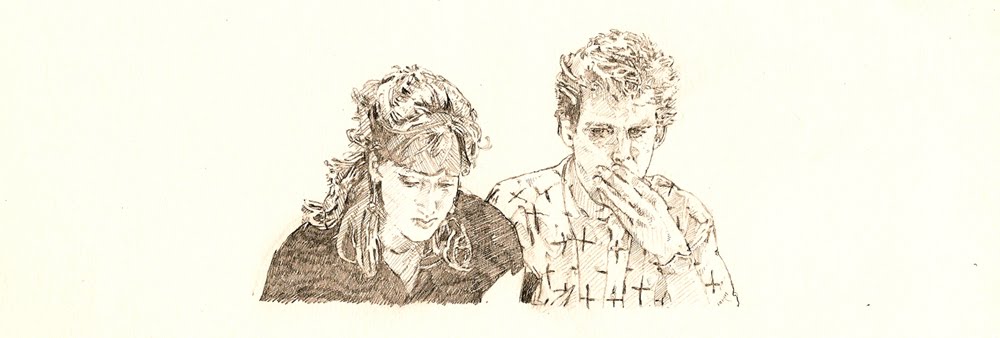Because I can't seem to be able to put youtube clips up here, do this:
-Go onto youtube
-type in: Just Me and You Louise Lasser
-click on 'louise lasser-just me and you'
-and watch.
I really want to see this movie.
Tuesday, 21 July 2009
Saturday, 18 July 2009
All That Glitters.
While looking up 'Mary Hartman, Mary Hartman' (and the shows that proceeded; 'Forever Fernwood' and 'Ferwood 2 Night') I found this:


'All That Glitters' was produced by Norman Lear (as was 'Mary Hartman, Mary Hartman', etc), but this was based on a reversal of the sexes...
''All That Glitters is a short-lived situation comedy television series by producer Norman Lear. It consisted of 65 episodes and aired between April 18 and July 15, 1977 in broadcast syndication. The show, a spoof of the soap opera format, depicted the trials and tribulations of a group of executives at the Globatron corporation. The twist of the series was that it was set within a world of complete role-reversal: Women were the "stronger sex," the executives and breadwinners, while the "weaker sex" – the men – were the secretaries or stay-at-home househusbands. Men were often treated as sex objects.''
It also starred Linda Gray, as the first regular transgender character on television, Linda Murkland. I'd love to see this, the only thing I could find is an introduction and a mention in an ad break.
Sunday, 5 July 2009
I can't talk now, I'm on the phone.

Mary Hartman, Mary Hartman has crept it's way into my life from a Frieze article that I read a while ago. I finally bought it on American import and it's more than living up to it's expectations. Louise Lasser really is perfectly cast as Mary, as is Mary Kay Place (who played Sharon Cherski's mum in My So-Called Life) as aspiring Country Singer Loretta Haggers. I can't find the Frieze article but I found this;
Madame Bovary, c'est moi
"As more and more people find themselves working at jobs that are in fact beneath their abilities, as leisure and sociability themselves take on the qualities of work, the posture of cynical detachment becomes the dominant style of everyday intercourse. Many forms of popular art appeal to this sense of knowingness and thereby reinforce it. They parody familiar roles and themes, inviting the audience to consider itself superior to its surroundings. Popular forms begin to parody themselves: Westerns take off on Westerns; soap operas like Fernwood, Soap, and Mary Hartman, Mary Hartman assure the viewer of his own sophistication by mocking the conventions of soap opera. Yet much popular art remains romantic and escapist, eschews this theater of the absurd, and promises escape from routine instead of ironic detachment. Advertising and popular romance dazzle their audiences with visions of rich experience and adventure. They promise not cynical detachment but a piece of the action, a part in the drama instead of cynical spectatorship. Emma Bovary, prototypical consumer of mass culture, still dreams; and her dreams, shared by millions, intensify dissatisfaction with jobs and social routine.
Unreflective accommodation to routine becomes progressively more difficult to achieve. While modern industry condemns people to jobs that insult their intelligence, the mass culture of romantic escape fills their heads with visions of experience beyond their means--beyond their emotional and imaginative capacity as well--and thus contributes to a further devaluation of routine. The disparity between romance and reality, the world of the beautiful people and the workaday world, gives rise to an ironic detachment that dulls pain but also cripples the will to change social conditions, to make even modest improvement in work and play, and to restore meaning and dignity to everyday life."
--Christopher Lasch
http://en.wikipedia.org/wiki/Mary_Hartman,_Mary_Hartman
Subscribe to:
Comments (Atom)
